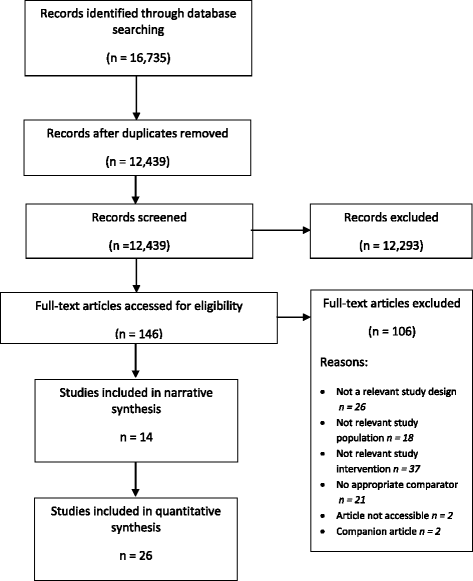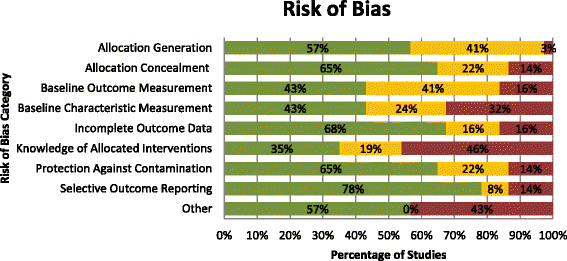What is the effectiveness of printed educational materials on primary care physician knowledge, behaviour, and patient outcomes: a systematic review and meta-analyses
- PMID: 26626547
- PMCID: PMC4666153
- DOI: 10.1186/s13012-015-0347-5
What is the effectiveness of printed educational materials on primary care physician knowledge, behaviour, and patient outcomes: a systematic review and meta-analyses
Abstract
Background: Printed educational materials (PEMs) are commonly used simple interventions that can be used alone or with other interventions to disseminate clinical evidence. They have been shown to have a small effect on health professional behaviour. However, we do not know whether they are effective in primary care. We investigated whether PEMs improve primary care physician (PCP) knowledge, behaviour, and patient outcomes.
Methods: We conducted a systematic review of PEMs developed for PCPs. Electronic databases were searched for randomized controlled trials, quasi randomized controlled trials, controlled before and after studies, and interrupted time series. We combined studies using meta-analyses when possible. Statistical heterogeneity was examined, and meta-analysis was performed using a random effects model when significant statistical heterogeneity was present and a fixed effects model otherwise. The template for intervention description and replication (TIDieR) checklist was used to assess the quality of intervention description.
Results: Our search identified 12,439 studies and 40 studies met our inclusion criteria. We combined outcomes from 26 studies in eight meta-analyses. No significant effect was found on clinically important patient outcomes, physician behaviour, or physician cognition when PEMs were compared to usual care. In the 14 studies that could not be included in the meta-analyses, 14 of 71 outcomes were significantly improved following receipt of PEMs compared to usual care. Most studies lacked details needed to replicate the intervention.
Conclusions: PEMs were not effective at improving patient outcomes, knowledge, or behaviour of PCPs. Further trials should explore ways to optimize the intervention and provide detailed information on the design of the materials.
Protocol registration: PROSPERO, CRD42013004356.
Figures
References
Publication types
MeSH terms
LinkOut - more resources
Full Text Sources
Other Literature Sources
Miscellaneous



